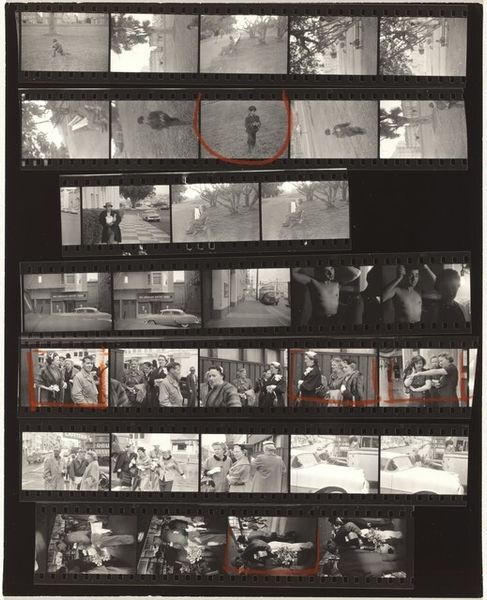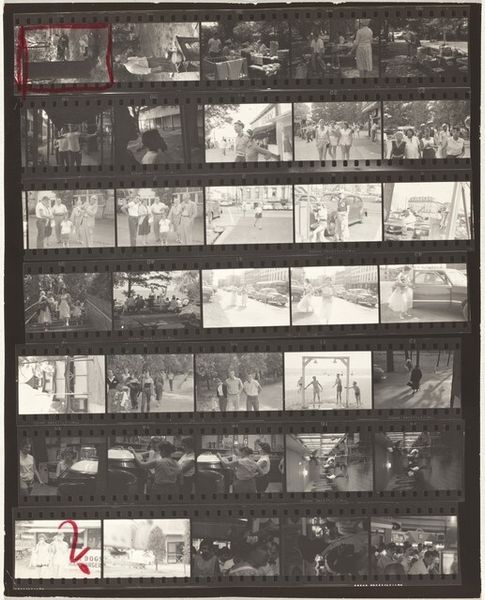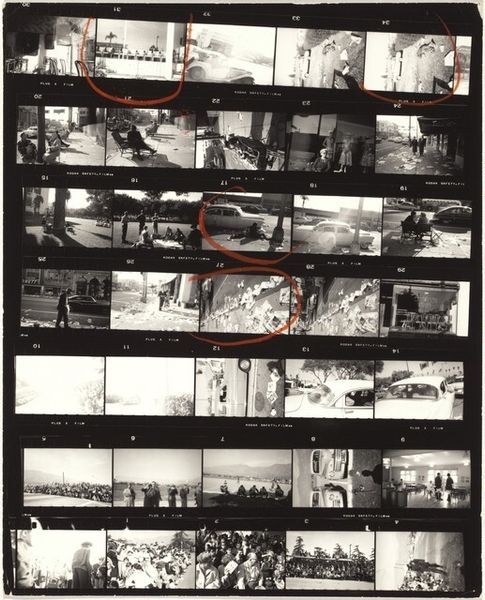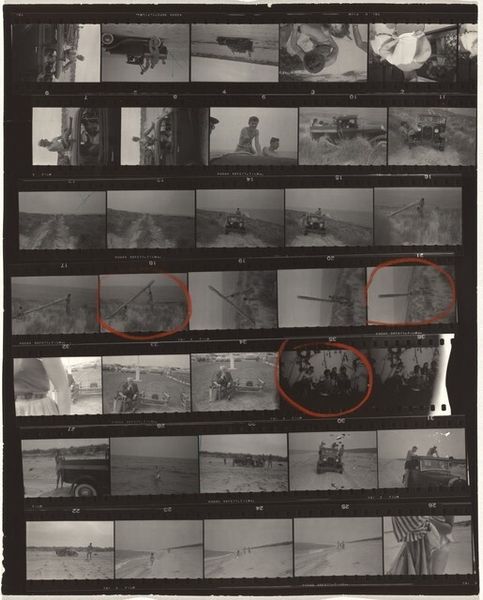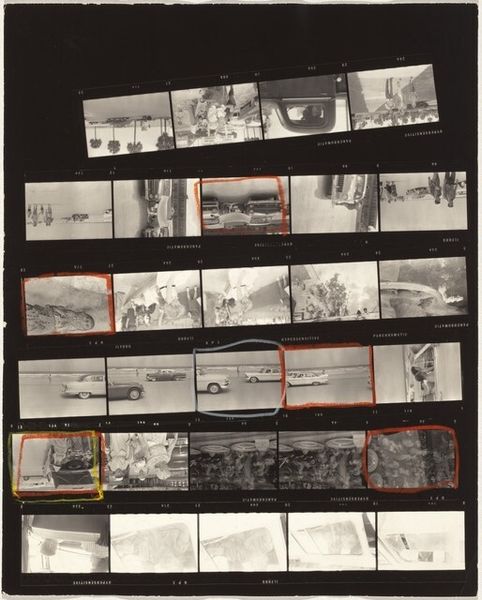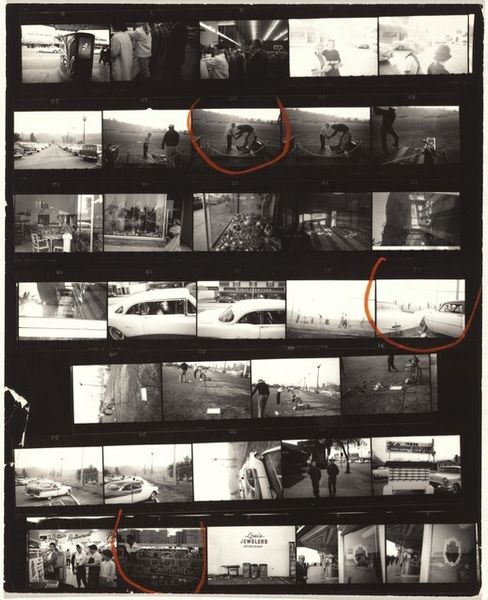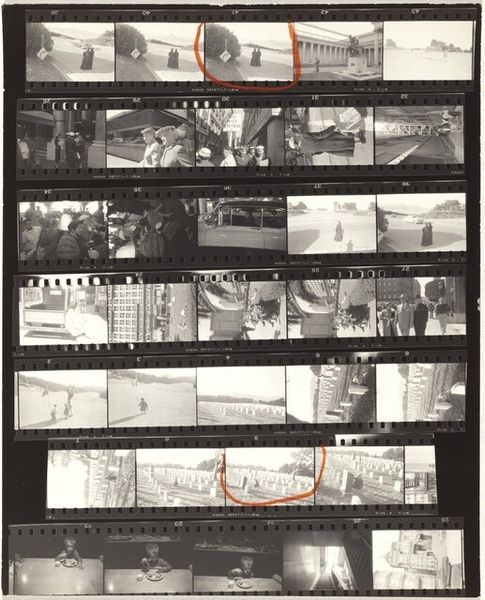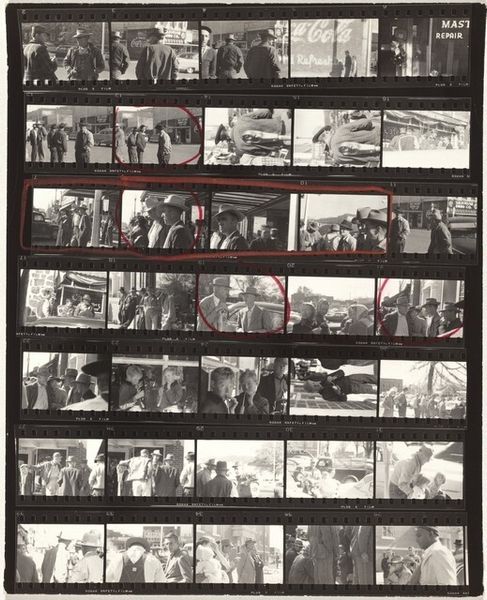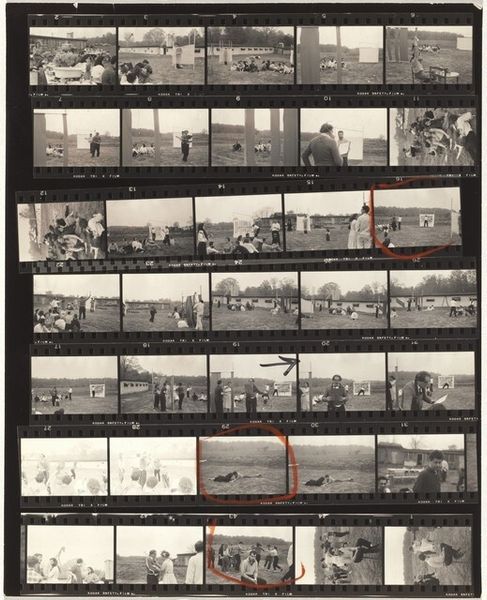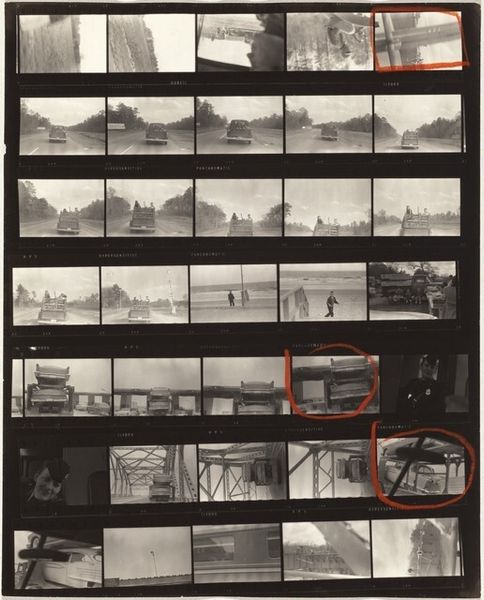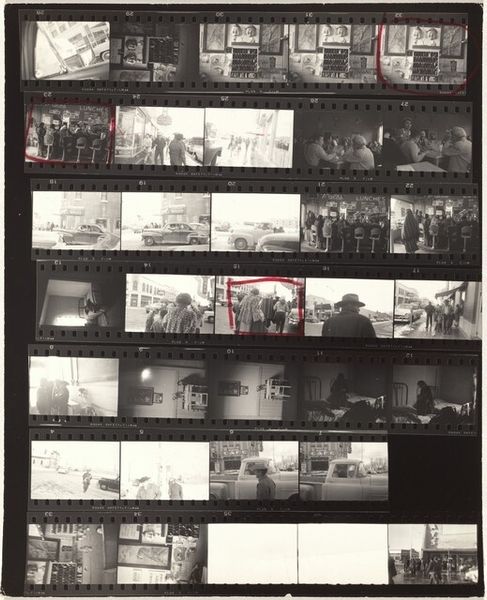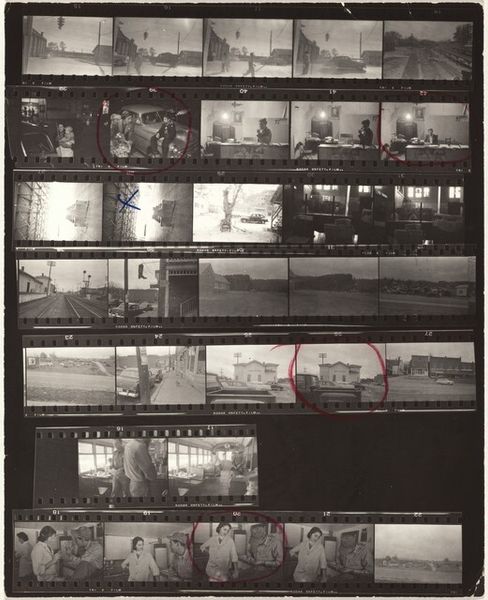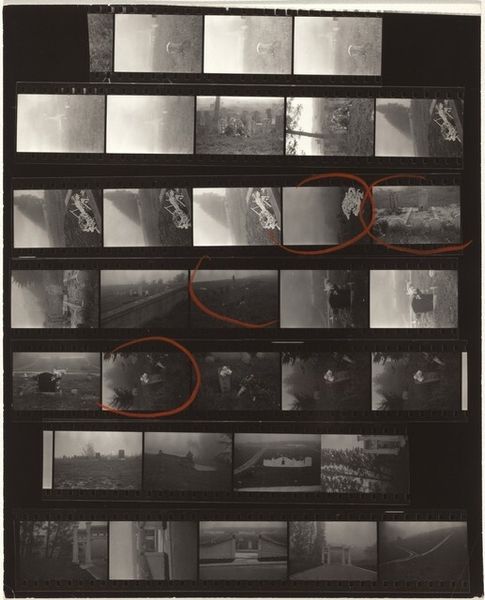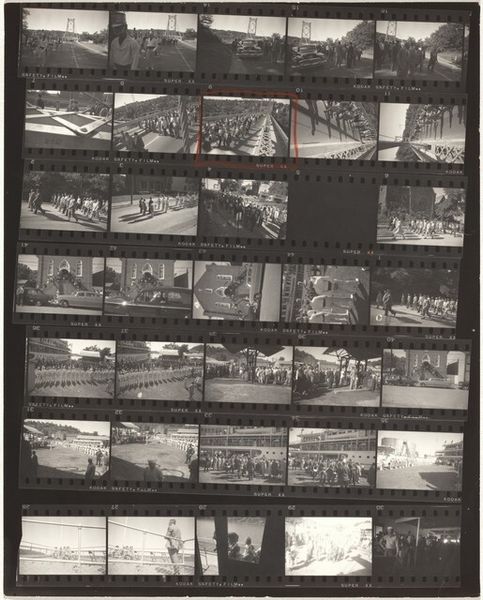
Guggenheim 304--Iuka, Mississippi and near McGehee, Arkansas c. 1955
0:00
0:00
photography, gelatin-silver-print
#
landscape
#
street-photography
#
photography
#
gelatin-silver-print
#
realism
Dimensions: overall: 25.3 x 20.4 cm (9 15/16 x 8 1/16 in.)
Copyright: National Gallery of Art: CC0 1.0
Curator: Here we have Robert Frank's 'Guggenheim 304--Iuka, Mississippi and near McGehee, Arkansas', circa 1955, a gelatin-silver print revealing multiple moments in time and space. Editor: It feels like a forgotten reel of film found tucked away, glimpses of life caught, almost voyeuristically, during a cross-country trip. Nostalgic but tinged with a certain melancholy, don’t you think? Curator: The raw materiality of the filmstrip itself is key; the sprocket holes, the frame numbers. It speaks volumes about Frank's methodology, challenging established photographic practices and their implicit hierarchies. Editor: Yes, absolutely! I feel a connection to his process. I imagine Frank, driven by an intuitive urge, just shooting away, frame after frame, capturing fleeting moments like trying to hold sand. Curator: Exactly. Look how these photographic images, these contact sheets, become the art object. The subject becomes both Iuka and McGehee and Frank’s social and personal vision of the landscape. Consider the socio-economic context in mid-century America. Editor: But also, doesn't the presentation shift our perception of each individual photo? Those circled in red– almost chosen but not quite. Are these highlights, failures or clues? Curator: Interesting point! He invites the viewer to be complicit, challenging notions of who decides the perfect shot. This echoes Walter Benjamin’s work on mechanical reproduction, doesn't it? Editor: You know, seeing it like this reminds me of my first darkroom experience. That almost magical moment seeing the image emerge from the chemicals. He presents process here not the pristine final product. It adds so much. Curator: Indeed. Frank's choice of materials is inherently political, as photography becomes accessible as both a medium for protest and cultural change, challenging art and documentary definitions. Editor: Reflecting upon this image, it strikes me how memory operates like a roll of film, capturing disparate scenes, moments, the poignant and banal. It makes me realize that art does not reflect life as much as complete it. Curator: Yes, his artistic decision has allowed viewers decades later to reconsider image-making, production and interpretation of American social conditions. Thank you, Robert Frank.
Comments
No comments
Be the first to comment and join the conversation on the ultimate creative platform.
